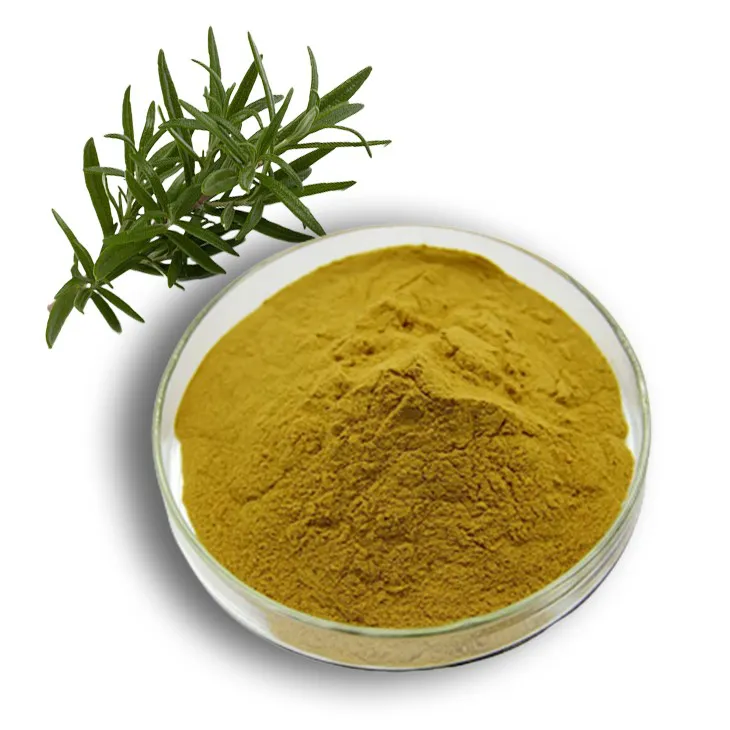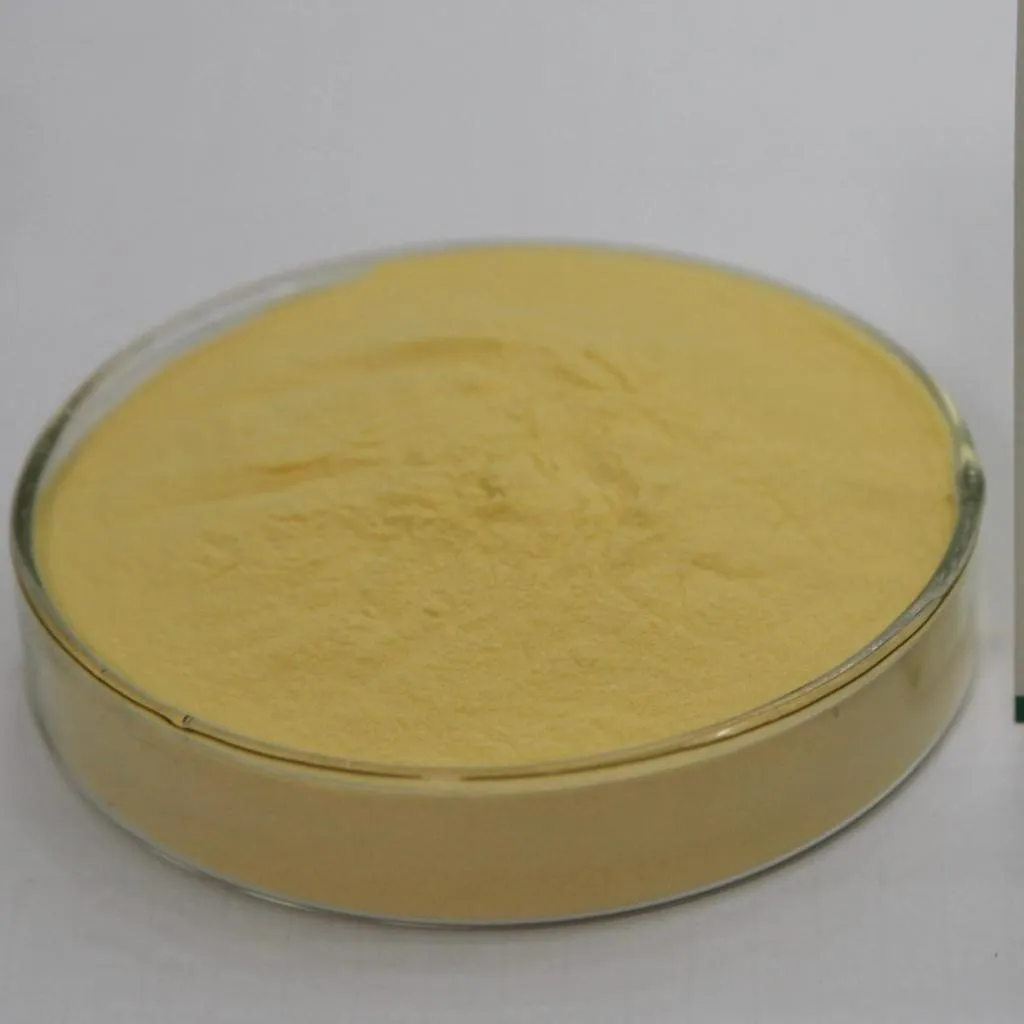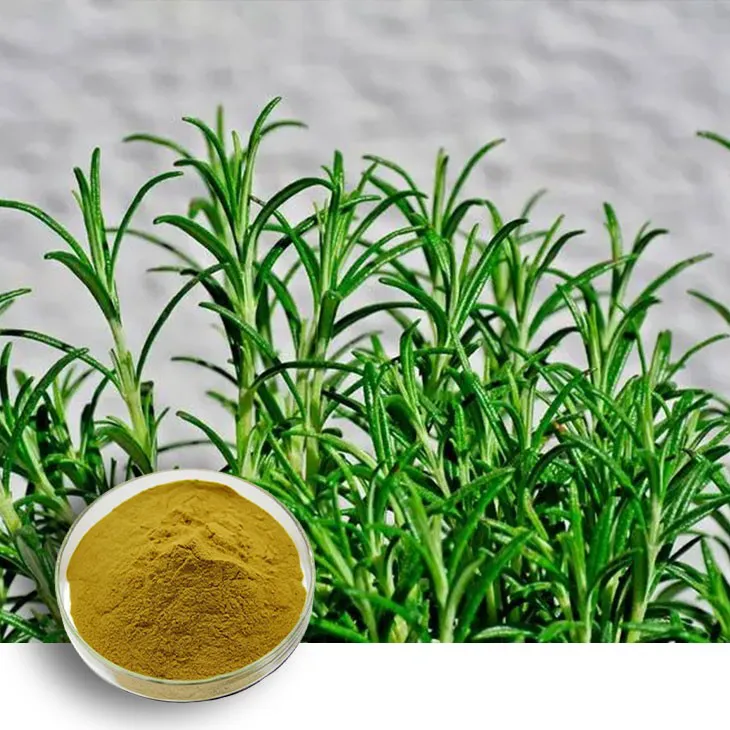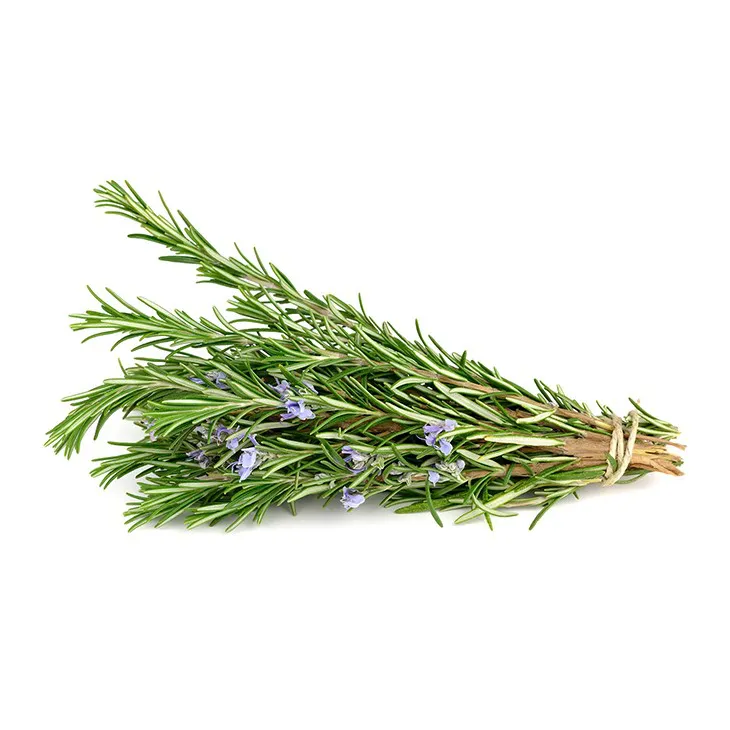- 0086-571-85302990
- sales@greenskybio.com
Best Answers to 7 Key Questions about Rosemary Extract.
2024-12-21

1. What is Rosemary extract?
Rosemary extract is a natural substance obtained from the rosemary plant (Rosmarinus officinalis). It is rich in various bioactive compounds. The main components include phenolic diterpenes such as carnosic acid and carnosol, as well as rosmarinic acid, which is a phenolic acid. These compounds are responsible for many of the extract's beneficial properties.

2. How is Rosemary extract Made?
There are different methods for producing rosemary extract. One common method is solvent extraction. In this process, solvents such as ethanol or supercritical carbon dioxide are used to extract the bioactive compounds from the rosemary plant material. The plant material is typically dried and ground before extraction. Another method is steam distillation, which is mainly used to obtain essential oils from rosemary. However, the extract obtained through steam distillation may have a different composition compared to solvent - extracted extract. The choice of method depends on the intended use of the extract and the desired compounds to be isolated.

3. What are the Health Benefits of Rosemary Extract?
Antioxidant Properties
Rosemary extract is a powerful antioxidant. The phenolic compounds in it, like carnosic acid and rosmarinic acid, can scavenge free radicals in the body. Free radicals are unstable molecules that can cause oxidative stress, which is linked to various diseases such as cancer, heart disease, and neurodegenerative disorders. By neutralizing free radicals, rosemary extract can help protect cells from damage and maintain the overall health of the body.
Anti - Inflammatory Effects
It also has anti - inflammatory properties. Studies have shown that rosemary extract can inhibit the production of inflammatory mediators such as cytokines and prostaglandins. This makes it potentially useful in treating inflammatory conditions like arthritis, where reducing inflammation is crucial for relieving pain and improving joint function.
Improvement of Cognitive Function
Some research suggests that rosemary extract may have a positive impact on cognitive function. It may enhance memory, concentration, and overall brain performance. The mechanisms behind this are not fully understood, but it could be related to its antioxidant and anti - inflammatory effects, as well as its potential to improve blood flow to the brain.

4. Are there any Side Effects of Rosemary Extract?
For most people, when used in normal amounts, rosemary extract is generally safe. However, in some cases, there may be potential side effects. High doses of rosemary extract may cause digestive issues such as stomach upset, nausea, or diarrhea. Additionally, some people may be allergic to rosemary, and in such cases, using rosemary extract can lead to allergic reactions like skin rashes or itching. Pregnant and breastfeeding women should also be cautious when using rosemary extract, as there is limited research on its safety during these periods.

5. How is Rosemary Extract Used in the Food Industry?
Rosemary extract is widely used in the food industry as a natural preservative. It can prevent the oxidation of fats and oils in food products, which helps to extend their shelf - life. This is especially important for products like meat, fish, and oils. It can also be used as a flavoring agent, adding a characteristic rosemary flavor to foods. For example, it can be found in some types of bread, soups, and seasonings.
6. What are the Applications of Rosemary Extract in Cosmetics?
- In cosmetics, rosemary extract is used for its antioxidant and anti - inflammatory properties. It can help protect the skin from environmental damage, such as damage from UV rays and pollution.
- It is also used in hair care products. Rosemary extract may promote hair growth by improving blood circulation to the scalp. It can also help to keep the hair healthy by preventing dandruff and reducing hair loss.
7. What are the Latest Research Findings on Rosemary Extract?
Recent research on rosemary extract has been exploring its potential in various fields. In the field of cancer research, some studies have investigated whether the antioxidant and anti - inflammatory properties of rosemary extract can play a role in cancer prevention or treatment. Although the results are still preliminary, there are indications that it may have certain inhibitory effects on cancer cell growth. In the area of neurodegenerative diseases, more research is being done to understand how rosemary extract can affect the progression of diseases like Alzheimer's. Some studies have shown that it may have a beneficial effect on reducing amyloid - beta plaques in the brain, which are associated with Alzheimer's disease. However, more in - depth research is needed to fully confirm these effects.
FAQ:
Question 1: What is the main chemical composition of rosemary extract?
Rosemary extract contains a variety of chemical components. Key ones include rosmarinic acid, carnosic acid, and carnosol. These compounds are responsible for many of its properties such as antioxidant and antimicrobial activities.
Question 2: What are the potential health benefits of rosemary extract?
Rosemary extract has several potential health benefits. It is known for its antioxidant properties, which can help protect cells from damage caused by free radicals. It may also have anti - inflammatory effects, potentially reducing inflammation in the body. Additionally, it has been studied for its potential to improve cognitive function and memory.
Question 3: Are there any side effects of rosemary extract?
In general, when used in normal amounts, rosemary extract is considered safe for most people. However, some individuals may experience allergic reactions. Also, in high doses, it may cause stomach upset, nausea, or other digestive issues.
Question 4: How is rosemary extract used in the food industry?
Rosemary extract is widely used in the food industry as a natural preservative. It can prevent the growth of bacteria, yeasts, and molds, thus extending the shelf life of food products. It is also used to add flavor to various foods, imparting a unique herbal and slightly bitter taste.
Question 5: Can rosemary extract be used in skincare?
Yes, rosemary extract can be used in skincare. Its antioxidant and anti - inflammatory properties make it beneficial for the skin. It can help protect the skin from environmental damage, reduce inflammation, and may also have a role in improving skin complexion and reducing signs of aging.
Related literature
- The Chemical Composition and Bioactivity of Rosemary Extract"
- "Rosemary Extract: A Review of its Potential Health Benefits"
- "Safety and Efficacy of Rosemary Extract in Food Preservation"
- "Rosemary Extract in Skincare: Current Research and Applications"
- ▶ Hesperidin
- ▶ Citrus Bioflavonoids
- ▶ Plant Extract
- ▶ lycopene
- ▶ Diosmin
- ▶ Grape seed extract
- ▶ Sea buckthorn Juice Powder
- ▶ Fruit Juice Powder
- ▶ Hops Extract
- ▶ Artichoke Extract
- ▶ Mushroom extract
- ▶ Astaxanthin
- ▶ Green Tea Extract
- ▶ Curcumin
- ▶ Horse Chestnut Extract
- ▶ Other Product
- ▶ Boswellia Serrata Extract
- ▶ Resveratrol
- ▶ Marigold Extract
- ▶ Grape Leaf Extract
- ▶ New Product
- ▶ Aminolevulinic acid
- ▶ Cranberry Extract
- ▶ Red Yeast Rice
- ▶ Red Wine Extract
-
Citrus Aurantii Extract
2024-12-21
-
Tamarind extract powder
2024-12-21
-
Purple Sweet Potato Extract
2024-12-21
-
Rosemary extract
2024-12-21
-
Saffron Extract Powder
2024-12-21
-
Pine bark Extract Powder
2024-12-21
-
Licorice Root Extract Powder
2024-12-21
-
Lavender Extract
2024-12-21
-
Fenugreek Extract Powder
2024-12-21
-
Hawthorn Extract
2024-12-21




















